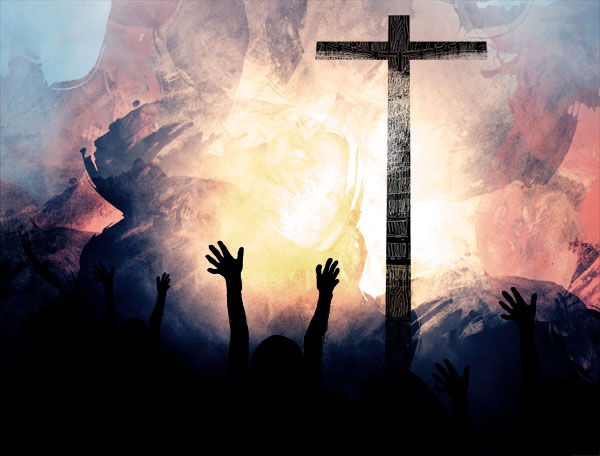How God Saves Us and Saves Holiness – by Des Ford
May 14, 2015 7586
 You know, in that great high priestly prayer recorded in John 17, Christ addresses the Father, “Oh Father, grant me the glory I had with thee before the world was,” and a little bit further down he says, “Oh, Holy Father, the world has not known me but I have known thee,” and then further down still he says, “Oh, righteous Father.”
You know, in that great high priestly prayer recorded in John 17, Christ addresses the Father, “Oh Father, grant me the glory I had with thee before the world was,” and a little bit further down he says, “Oh, Holy Father, the world has not known me but I have known thee,” and then further down still he says, “Oh, righteous Father.”
God is a father, and we know what kind of a father he is – love, mercy, compassion and sympathy, “Like as a father pities his children, so the Lord pities them that fear him” (Ps 130:13).
But a “righteous father,” a “holy father,” what does that mean?
Well, can I remind you there is a very strange, double picture of Christ in the Gospels. In Matthew 5:44,45 Jesus says, “I say to you, love your enemies, pray for those who persecute you so you may be the sons of your father who is in heaven for he makes the sun rise on the evil and on the good and sends rain on the just and the unjust.” In Luke’s version it adds, “He is kind to the ungrateful and to the selfish.” That’s a great picture.
Now, look at chapter 7:11, “If you then, who are evil know how to give good gifts to your children, how much more will your father who is in heaven give good gifts to those who ask him?” So the picture is clear; God is a loving father. He loves his enemies, the selfish, he loves the ungrateful.
But now look back to chapter five in Matthew again. Here Jesus says in verse 22, ”I say to you everyone who is angry with his brother shall be liable to judgment. Whoever insults his brother shall be liable to the council, whoever says, ‘You fool’ shall be liable to the fire.” Now look at verse 29, “If your right eye causes you to sin, pluck it out and throw it away; better you lose one of your members than your whole body be thrown into hell.” Look at verses 25 and 26, “Make friends quickly with your accuser before you go into court with him, lest your accuser hand you over to the judge and the judge to the guard and you be put in prison; truly I say to you, you will never get out until you have paid the very last penny.”
This seems different. It seems contradictory. But it is the same speaker speaking at the same time in the same sermon. What does it mean?
How do we reconcile the two? The fact is that the Biible revolvess around law and love, for God is light as well as truth. God is truth as well as mercy. He’s a Father but he is a righteous father. He’s a Father but a Holy Father.
The Bible reveals a God who is determined by grace, by love, by his own self-sacrifice to establish holiness. What sort of a God has the universe got if he says the wages of sin is death and does not carry it through? This is why the Bible says he is both just and the justifier. That’s why it says he is just and having salvation. The Bible pictures a God who is both intent on saving us and saving holiness.
– Des Ford. Rom 8:27–32. From “What Do We Mean By The Atonement?”
